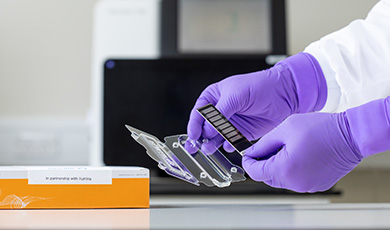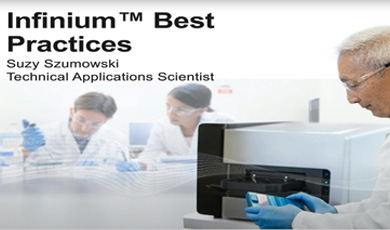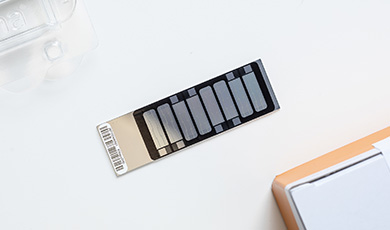Genomics kits
Increase my knowledge
-
![]()
Infinium Chemistry
Introduction to the Infinium assay, including the biochemical mechanism of each step.
Go to E-learning -
![]()
Infinium Array: Best practices
Assay tips and best practices for data management, lab setup, maintenance and protocol tracking in the Infinium Assay.
See video -
![]()
Evaluation of the Infinium Genotyping assay controls
Training course on Infinium controls. The definition of the different controls and expected outcomes of these controls.
Go to E-learning


